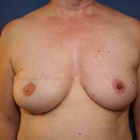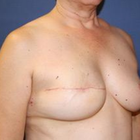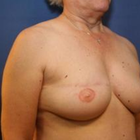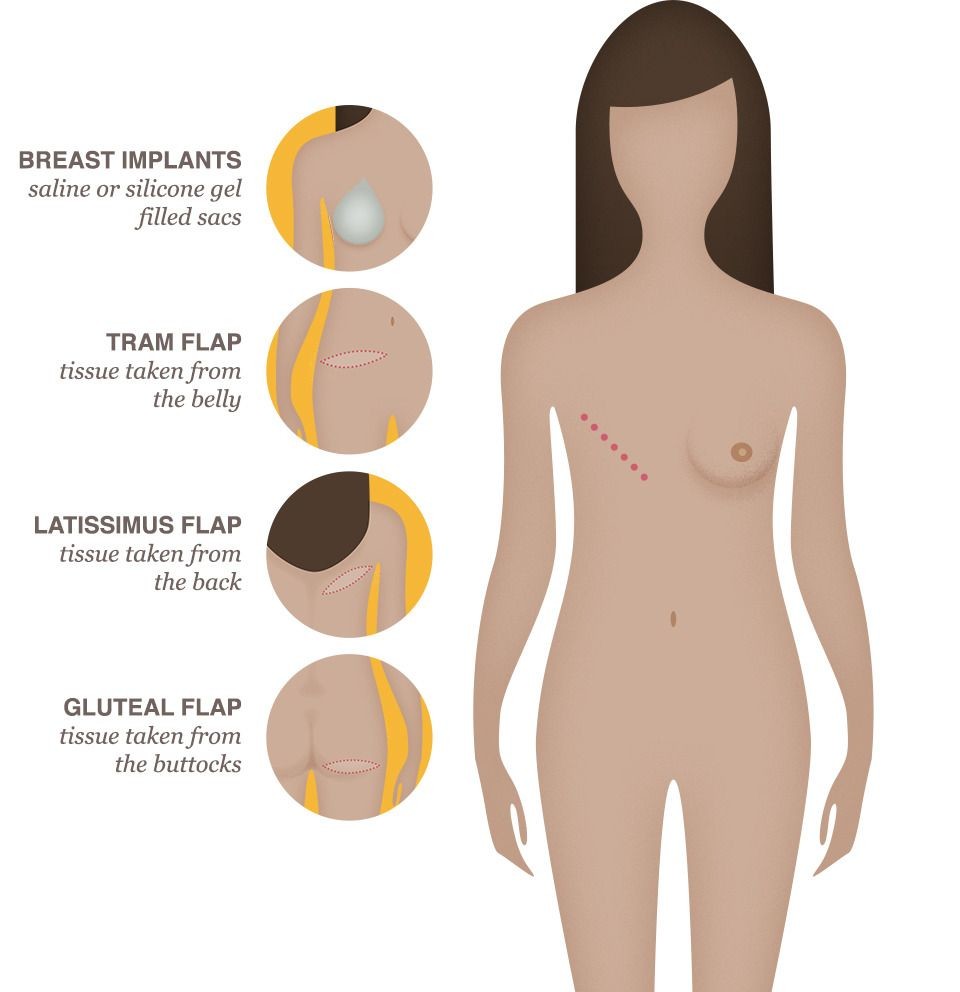Breast Reconstruction in Brazil
Search and Compare the Best Clinics and Doctors at the Lowest Prices for Breast Reconstruction in Brazil

Find the best clinics for Breast Reconstruction in Brazil
With Medijump you can browse 8 facilities offering Breast Reconstruction procedures in Brazil. The cheapest price available is $1,500 in Rio de Janeiro. And for the cheapest price globally, prices start from $477 in India.
Breast Reconstruction in Rio de Janeiro
Price: $ 1,500
Breast Reconstruction in Araraquara
Price: $ 4,029
India offers the best prices Worldwide
Price: $ 477
From 7 verified reviews
Regiane Mendes, 16 December 2018
Great Professionals!
From 1 verified reviews
Vyacheslav Kalaushin, 18 April 2016
One of the best Klinik.
Dra Carla Iaconelli, can be found in R Para, Sao Paulo, Brazil and offers its patients Breast Reconstruction procedures as well as 111 other procedures, across 2 different procedure categories. At present, there is no pricing information for Breast Reconstruction procedures at Dra Carla Iaconelli. The pricing information is quite specialised, so it's only available on request, and the average price is around $2,765. The lead specialist at the Hospital will be carrying out all the treatments, and Dra Carla Iaconelli has several accreditations, including: FEBRASGO - Federação Brasileira das Associações de Ginecologia e ObstetríciaSBRA - Sociedade Brasileira de Reprodução Assistida
From 30 verified reviews
Amanda Maia, 14 September 2020
The seriousness and commitment that you transmit in the consultation, caught my attention!Super attentive, took all my doubts. I loved the consultation and I'm really looking forward to our surgery! (Note: we already scheduled the first appointment, I was so confident that I was fiquei️)Excellent professional!
From 2 verified reviews
Talita Gonçalves, 01 May 2019
Wonderful love my surgery I did lipo abdominoplasty and the buttock augmentation was beautiful the surgery all my friends praise dr marco perfect 😍
From 25 verified reviews
Leila Mosquera, 21 September 2020
Wonderful clinic! Dr. Luciana is sensational and this extends to her entire team. When I am at the clinic I feel very good energy and I feel like spending all day there. Besides, the clinic is beautiful and makes everything a huge and grateful experience. I am Dr. Luciana's patient and in my opinion she is the best.
From 1 verified reviews
Simone Bocater, 19 July 2019
Terrible service! I called to inquire and as the person responsible for the procedure was not, the clerk was unable to ask for my phone, try to help.In short, they must be rich!
CosmeticVacations, located in R Real Grandeza, Rio de Janeiro, Brazil offers patients Breast Reconstruction procedures among its total of 64 available procedures, across 7 different specialties. Currently, there's no pricing information for Breast Reconstruction procedures at CosmeticVacations, as all prices are available on request only, whilst the national average price is approximately $2,765. All procedures and treatments are undertaken by the lead specialist at the Hospital, and they have multiple recognized accreditations, including: ASPS - American Society of Plastic SurgeonsSBCP - Sociedade Brasileira de Cirurgia PlásticaSBD - Sociedade Brasileira de DermatologiaSBCD - Sociedade Brasileira de Cirurgia DermatológicaAEXPI - Associação dos Ex-alunos do Professor Ivo PitanguyCBA - Consórcio Brasileiro de AcreditaçãoSBA - Sociedade Brasileira de AnestesiologiaSBCM - Sociedade Brasileira de Cirurgia da MãoSBU - Sociedade Brasileira de Urologia
- Home
- Brazil
Compare Before & After Photos of _procedure_photos.phpBreast Reconstruction


Front view


Half-side view


Front view


Half-side view


Front view


Front view
WHY US?
At Medijump, we're making medical easy. You can search, compare, discuss, and book your medical all in one place. We open the door to the best medical providers worldwide, saving you time and energy along the way, and it's all for FREE, no hidden fees, and no price markups guaranteed. So what are you waiting for?

Free

Best Price

Widest Selection

Risk-Free
What you need to know about Breast Reconstruction in Brazil

Breast reconstruction is a significant surgery undertaken to rejuvenate the physical form of a woman's chest after losing one or both breasts to cancer or another disease. In Brazil, medical centres are well-equipped with top-tier talent in plastic surgery to facilitate this intricate procedure. Every woman's journey is different, and her treatment plan is personalized, considering her unique circumstances and needs.
It's heartening to know that breast cancer treatments like chemotherapy or radiation therapy aren't impeded by reconstruction. Moreover, this surgery doesn't spike the risk of cancer coming back. Undeniably, breast reconstruction is a major surgery with inherent risks, including chances of infection, complications with wound healing, and potential dilemmas related to implants.
What is the cost of Breast Reconstruction in Brazil?
Undergoing surgery like Breast Reconstruction brings along a financial commitment. The expense varies extensively, depending on many factors like the complexity of the procedure, the medical professional performing the surgery, the hospital's facility, and the region, amongst others. Generally, the cost might range between $15,000 to $50,000, including multiple surgeries or intricate techniques within this estimate.
Thankfully, in many cases, insurance plans cover such surgical procedures, especially given mandates like the Women's Health and Cancer Rights Act of 1998 in the U.S. Still, out-of-pocket expenses associated with co-payment or deductibles can add up. It's recommended to navigate these aspects with your insurance provider and your chosen healthcare facility in Brazil.
What does a Breast Reconstruction Procedure Involve?
Breast reconstruction generally happens in stages, starting with the most complex first, which may either occur at the same time as the mastectomy or later, based on the individual’s specific health conditions or treatment plan.
Two main techniques are employed in breast reconstruction. One is the use of an implant, saline, or silicone to recreate the breast shape. Two, autologous or flap reconstruction where tissue from the patient’s body like the abdomen or thigh is relocated to recreate the breast shape. The method selected is dependent on individual factors like the patient’s health, personal choice, cancer type, and stage.
After the primary surgery and post an adequate healing period, the surgeon performs a second procedure to recreate the nipple and areola. Later, to give it a natural look, the nipple-areola complex is tattooed. Remember that although it is a common procedure, complications might arise involving reaction to anaesthesia, bleeding, infection, poor healing or the need for further interventions.
How Long Should I Stay in Brazil for a Breast Reconstruction Procedure?
Post-breast reconstruction surgery, patients typically stay in the hospital for two to five days. However, if the reconstruction was done immediately after the mastectomy, the stay could extend from three to six days.
Overall, a patient should expect to remain in Brazil for approximately two weeks post-surgery. This allows enough time for necessary follow-ups and to address any complications, if they arise. As with any major surgical procedure, do not hasten the healing process.
What's the Recovery Time for Breast Reconstruction Procedures in Brazil?
The recovery timeframe for breast reconstruction procedures in Brazil varies from patient to patient. Generally, for implant-based procedures, patients may take about four to six weeks to recuperate before they return to normal routines. For more complex autologous techniques, particularly those using abdominal tissue, patients might require six to eight weeks for recovery.
Recovering patients need to temper their activities during this period. Avoid lifting heavy objects and defer strenuous exercise until your physician gives a clear signal. Medical assistance should be promptly sought if any discomforting symptoms like chronic pain, redness or swelling surface.
What's the Success Rate of Breast Reconstruction Procedures in Brazil?
Medical success cannot just be measured in terms of complication-free postoperative progress or longevity of implants used in breast reconstruction. Patient satisfaction with their surgery, their psychological well-being following the operation, their perception of body image, and their quality of life post-surgery are equally important factors to consider. Studies indicate that between 85% to 90% of women who have undergone breast reconstruction are satisfied with the long-term results.
In Brazil, dedicated hospitals and healthcare facilities strive to offer high-quality treatment, ensuring the best possible surgical outcomes using progressive technology and experienced professionals. Still, everyone's response to surgery varies, and outcomes depend on factors such as overall health, age, body type, and compliance with surgical advice.
Are there Alternatives to Breast Reconstruction Procedures in Brazil?
Indeed, there are alternatives to breast reconstruction in Brazil. The journey of every woman is unique and how she chooses to deal with the loss of a breast, or both, is a highly personal decision. Alternatives include:
- Breast Prostheses or Forms: They are silicone forms that imitate the appearance and feel of natural breast tissue. They come in diverse sizes, shapes and colours to closely match the woman's skin tone.
- Flat Closure: In this method, the surgeons sew up the chest wound smoothly, without constructing a breast mound. This option appeals to women who choose not to have more surgeries or body implants.
- Opting not to undergo reconstruction at all, also termed as "going flat: This method exhibits the woman's choice to live comfortably with her new body shape without artificial substitutes or further surgeries. It is a fully personal decision deserving respect and support.
Each of these options has pros and cons, and the choice depends on the woman’s personal preference, health status, lifestyle, and perception of her body. Regardless of the choice, it’s important to regularly monitor breast health and engage in practices that promote overall wellness.
What Should You Expect Before and After the Breast Reconstruction Procedure?
Before the surgery, comprehensive discussions with the surgeon will take place to understand treatment objectives, outcomes, and possible complications. Preoperative tests, lifestyle modifications, and nutritional advice may form a part of the preparatory process.
Postoperative care is equally important: discomfort, swelling, and bruising are normal and subside over time. Pain management strategies will be provided to help you manage discomfort effectively. Your surgeon will provide personalised guidance on caring for your surgical site, usage of medications, and physical activities.
What sort of Aftercare is Required for Breast Reconstruction Procedures in Brazil?
The following points should be considered post-operation:
- Follow the instructions given by your doctor and take your medicines as and when prescribed.
- Consult a nutritionist for a diet plan. A healthy diet helps you recover faster.
- Do not wear a padded or underwire bra until allowed by your doctor.
- Use surgical bras in the early few days after the surgery.
- Avoid excessive unnecessary movement of your breasts.
- Do not lift heavy objects and children - it could stretch on your stitches.
- Change your bandage whenever it gets dirty. Germs can cause infection.
- Do not take a bath when the bandages are still intact. A wet bandage can also be the cause of infection.
- Abstain from sexual activity for at least 6 weeks.
- Take rest - give yourself time to recover.
How Do I Prevent Cancer from Recurring?
Preventing cancer recurrence largely revolves around a balanced, healthy lifestyle coupled with regular medical check-ups. Regular exercise, maintaining a healthy weight, and eating nutritiously can contribute to cancer prevention. Smoke cessation and limiting exposure to secondhand smoke are crucial for both prevention and postoperative recovery.
Regular breast self-examinations, as well as mammograms and follow-up visits, are critical for early detection of any recurrence. Stress management techniques like yoga, meditation, and spending time in nature can also play an essential role in overall health.
Your medical team in Brazil is there to support you, offering advice tailored to your individual health status and medical history. Remember, proactive health checks are key to maintaining overall health and preventing the recurrence of diseases like cancer.
What is the ideal time to have Breast Reconstruction surgery after a Mastectomy in Brazil?
The decision regarding when to have Breast Reconstruction following a Mastectomy in Brazil is largely based on the individual's health status, treatment plan, personal preferences, and discussions with the oncology team. Breast reconstruction can be done at the time of mastectomy (immediate reconstruction) or at a later date (delayed reconstruction). Immediate reconstruction might offer psychological benefits and less overall surgery since both procedures are done together. Yet, if additional treatments such as radiation therapy are required post-mastectomy, opting for delayed reconstruction could be advisable to avoid risks posed by radiation to the new construct.
Remember that deciding on the timing of breast reconstruction is a personal choice and should be made in consultation with your healthcare providers. They can provide specific guidance based on your health condition and treatment plan.
How Will Breast Reconstruction in Brazil Impact My Routine Mammograms and Breast Cancer Detection?
Breast reconstruction surgery may impact the way routine breast cancer screenings are conducted. After a mastectomy with or without reconstruction, women usually don't need routine screening mammograms on the treated side since all breast tissue has been removed. However, they would need routine mammograms for the untreated breasts.
If you've had reconstruction using your own body tissue, your surgeon or oncologist will guide you on whether or not you'll require mammograms on the reconstructed breast. Remember, mammograms can still be performed on reconstructed breasts, and self-breast exams should be a regular part of your health routine.
Whilst the information presented here has been accurately sourced and verified by a medical professional for its accuracy, it is still advised to consult with your doctor before pursuing a medical treatment at one of the listed medical providers
No Time?
Tell us what you're looking for and we'll reachout to the top clinics all at once
Enquire Now

Popular Procedures in Brazil
Prices Start From $497

Prices Start From $208

Prices Start From $834

Prices Start From $500

Prices Start From $93

Prices Start From $85

Recommended Medical Centers in Brazil for Breast Reconstruction

- Interpreter services
- Translation service
- Religious facilities
- Medical records transfer
- Medical travel insurance
- Health insurance coordination
- TV in the room
- Safe in the room
- Phone in the room
- Private rooms for patients available

- Interpreter services
- Translation service
- Religious facilities
- Medical records transfer
- Medical travel insurance
- Health insurance coordination
- TV in the room
- Safe in the room
- Phone in the room
- Private rooms for patients available

- Interpreter services
- Translation service
- Religious facilities
- Medical records transfer
- Medical travel insurance
- Health insurance coordination
- TV in the room
- Safe in the room
- Phone in the room
- Private rooms for patients available

- Interpreter services
- Translation service
- Religious facilities
- Medical records transfer
- Medical travel insurance
- Health insurance coordination
- TV in the room
- Safe in the room
- Phone in the room
- Private rooms for patients available

- Interpreter services
- Translation service
- Religious facilities
- Medical records transfer
- Medical travel insurance
- Health insurance coordination
- TV in the room
- Safe in the room
- Phone in the room
- Private rooms for patients available

- Interpreter services
- Translation service
- Religious facilities
- Medical records transfer
- Medical travel insurance
- Health insurance coordination
- TV in the room
- Safe in the room
- Phone in the room
- Private rooms for patients available

- Interpreter services
- Translation service
- Religious facilities
- Medical records transfer
- Medical travel insurance
- Health insurance coordination
- TV in the room
- Safe in the room
- Phone in the room
- Private rooms for patients available

- Interpreter services
- Translation service
- Religious facilities
- Medical records transfer
- Medical travel insurance
- Health insurance coordination
- TV in the room
- Safe in the room
- Phone in the room
- Private rooms for patients available

- Interpreter services
- Translation service
- Religious facilities
- Medical records transfer
- Medical travel insurance
- Health insurance coordination
- TV in the room
- Safe in the room
- Phone in the room
- Private rooms for patients available

- Interpreter services
- Translation service
- Religious facilities
- Medical records transfer
- Medical travel insurance
- Health insurance coordination
- TV in the room
- Safe in the room
- Phone in the room
- Private rooms for patients available
Breast Reconstruction in and around Brazil
About Brazil
Occupying the title of the largest country in South America, Brazil embraces a diverse population of over 209 million people. The nation is globally renowned for its passion for football (also referred to as soccer in some parts of the world) and their dynamic, flamboyant carnival traditions, boasting a vibrant mix of music, dance, and colorful attire.
In addition to its vivacious culture, Brazil is a sanctuary of spectacular natural beauty. The country nurtures some of the world's most stunning natural wonders, including the dramatic Iguacu Falls and the world's largest tropical rainforest, the Amazon Rainforest, teeming with diverse plant and animal species. One can't miss the landmark figurine of Christ the Redeemer in Rio de Janeiro that towers 98-feet high, becoming a symbol of Brazil's deep-rooted religious faith and an iconic sight that captures hearts worldwide.
Brazil offers more than 60 JCI-accredited facilities and is one of the leading destinations in the world for cosmetic surgery, with Breast Reconstruction procedures being especially popular. Doctors are often Western-trained and speak English on top of Portuguese and Spanish. Local accreditations include the Consortium of Brazilian Accreditation and the Brazilian Hospital Medical Quality Organization (ONA). Popular locations within Brazil include the capital Brasilia, Rio de Janeiro, Sao Paulo, and Curitiba.
Popular Parts of Brazil
- Rio de Janeiro is a combination of natural attractions and metropolis. It is known to be a party city that offers good times and an unforgettable experience. Lounge around in the world-famous beaches of Ipanema and Copacabana, sample Brazilian cuisine, hike the summit of Corcovado and see the high statue of Christ the Redeemer, dance in Rio Carnival, and see the spectacular views of Ipanema and Guanabara Bay from the Sugarloaf Mountain.
- São Paulo is the largest city in Brazil. It is a huge city that at first glance seems intimidating. It offers hundreds of museums, quirky urban art, delicious cuisine, lively nightlife, and intense cultural experience. Visit Avenida Paulista (Paulista Avenue), a street filled with shopping centers, parks, bars, restaurants, museums, theatres, and cultural spaces.
- Salvador is full of vibrant cultures. It is the heart of Brazil’s Afro-Brazilian community. The city’s charm lies in its pastel-colored neighborhood, centuries-old architecture, and freshly-cooked acarajé and completed with wild festivals and capoeira circles every night.
- Brasília is Brazil’s capital. It’s very modern with futuristic architecture that looks more like artworks than ordinary buildings. It’s a paradise for architecture buffs. Besides the architecture, the food and nightlife in this city is something that should not be missed.
- Manaus might be isolated in terms of location, but it’s actually a large city with a prospering industry and a rich culture. The city is also filled with natural beauty; green spaces, waterfalls, and ecological parks surround its colonial buildings. It is the gateway to the Amazon Rainforest.
Weather and Climate in Brazil
As a large country, the weather in Brazil varies from tropical in the north to temperate in the south. A large part of the country lies in the topics. Brazil is a year-round destination because it has a steady average annual temperature. The temperature rarely drops below 20 °C.
Winter in Brazil starts in May and ends in September. The weather remains tropical in the north with an average temperature ranging between 20 °C to 30 °C. In Rio de Janeiro, the temperature varies between 14 °C to 25 °C. However, the evenings usually feel a lot colder.
During this particular season, one can expect a fair amount of rainfall in Rio, leading to many wet and rain-soaked days. If you plan a visit at this time, it's wise to keep that in mind and prepare accordingly. In contrast, further inland, São Paulo experiences significantly cooler temperatures compared to Rio, reflecting the country's vast geographical expanse and diverse microclimates spread across its regions.
This temperature drop might require some warm clothing, especially during late evenings and nights. So, whether you wish to enjoy the rainy murmur in Rio or seek the cool retreat of São Paulo, there's something unique for every traveler in Brazil during this season.
The temperature in Rio rise between November and March, with the highest temperature of around 40 °C but with a thermal sensation of around 50 °C. The Rain rarely lasts long during these months. In the north of Brazil, the rainy season starts in December. March and May see the heaviest rainfall. It’s hot and humid with frequent rain throughout the year in the Amazon.
Getting Around in Brazil
The most popular international airports are Rio de Janeiro–Antonio Carlos Jobim International Airport (popularly known as Galeão International Airport) and São Paulo/Guarulhos–Governador André Franco Montoro International Airport. Both airports serve domestic and international flights to many cities around the globe. The airports mainly serve major airlines but there are budget airlines such as Norwegian Air UK. Tourists can take taxis, bus, train, or car rental from both airports to the city centers.
Brazil is really big, so there will be a lot of long-distance travel to get around the country. The easiest and fastest way to get from one city to another is by domestic flights. The only downside is that the tickets are very expensive. LATAM and GOL Airlines offer multi-trip tickets or air pass. The most economical option is to buy an air pass if you plan to visit a number of different cities.
Buses are popular in Brazil, servicing most areas of the country. The bus system is excellent and provides a comfortable and economical way of travel. Be aware that the distance can be really tiring and overwhelming; some trips can take over 40 hours. The buses are operated by hundreds of different private companies, but the price is standardized. The fare varies from 75 BRL to 240 BRL. There are luxurious buses too.
A good way to get around major cities like São Paulo and Rio is to use Brazil Metro (subway). The fares are around 3.50 BRL to 3.80 BRL. You can purchase rechargeable travel cards. The metro does not operate at night. Be sure to watch your belongings at all times when traveling on the metro.
Taxis run on a metered system, but if you travel a bit further out of town, you need to negotiate the price with the driver. It is best to phone for a taxi or pick one up at a taxi station and make sure to get into a licensed taxi. Ferries and other water travel are important in many parts of Brazil.
Tourist Visas in Brazil
Nationals of 72 countries and territories can enter and stay in Brazil for up to 90 days without a visa. In some cases, an identity document may be accepted instead of a passport. Citizens of other countries, including China and India, must apply for and obtain a visa before entering Brazil. It is recommended to contact the nearest Brazilian embassy or consulate for the most up-to-date visa information.
Brazil offers an electronic visa (e-Visa) for citizens of eligible countries. The e-Visa is valid for two years and allows multiple entries for stays of up to 90 days per year. Applicants can apply for the e-Visa online through the Brazilian government's website.
Additional Information
- Local Currency: The official currency is the Brazilian Real (BRL). 1 USD will get you approximately 5.04 BRL.
- Money & Payments: ATMs are widely available in Brazil and it is the easiest way of getting cash in big cities. ATMs in smaller towns usually don’t work for non-Brazilian cards. Credit cards (Visa and MasterCard) are accepted in numerous shops, restaurants, and hotels. It might be handy to always have cash with you, but always be extremely cautious. Tipping is optional for housekeepers, tip parking assistants 2 BRL, or more since they do not receive wages and depend on tips. Taxis do not expect tips. Restaurants usually include a 10% service charge in the bill.
- Local Language: The official language is Portuguese. English is not widely spoken, especially outside Rio and São Paulo.
- Local Culture and Religion: The largest religion in Brazil is Christianity with more than 60% of the population follows Roman Catholicism.
- Public Holidays: Brazil celebrates major Christian religious holidays as well as Independence Day and Civil Servants Day. Festa Junina, Parintins Folklore Festival, and Oktoberfest are three of the biggest annual festival in the country.
Popular Searches
- Plastic Surgery in Thailand
- Dental Implants in Thailand
- Hair Transplant in Thailand
- Breast Augmentation Thailand
- Gastric Sleeve in Thailand
- Gender Reassignment Surgery in Thailand
- Laser Hair Removal in Bangkok
- Botox in Bangkok
- Dermatology in Bangkok
- Breast Augmentation in Bangkok
- Coolsculpting in Bangkok
- Veneers in Turkey
- Hair Transplant in Turkey
- Rhinoplasty in Turkey
- Stem Cell Therapy in Mexico
- Rhinoplasty in Mexico
- Liposuction in Mexico
- Coolsculpting in Tijuana
- Rhinoplasty in Korea
- Scar Removal in Korea
- Gastric Sleeve in Turkey
- Bone Marrow Transplant in India
- Invisalign in Malaysia
- Plastic Surgery in the Dominican Republic
- Tummy Tuck in the Dominican Republic
- Plastic and Cosmetic Surgery in Poland
- Rhinoplasty in Poland
- Hair Implant in Poland
- Dental Implants in Poland
- IVF in Turkey






